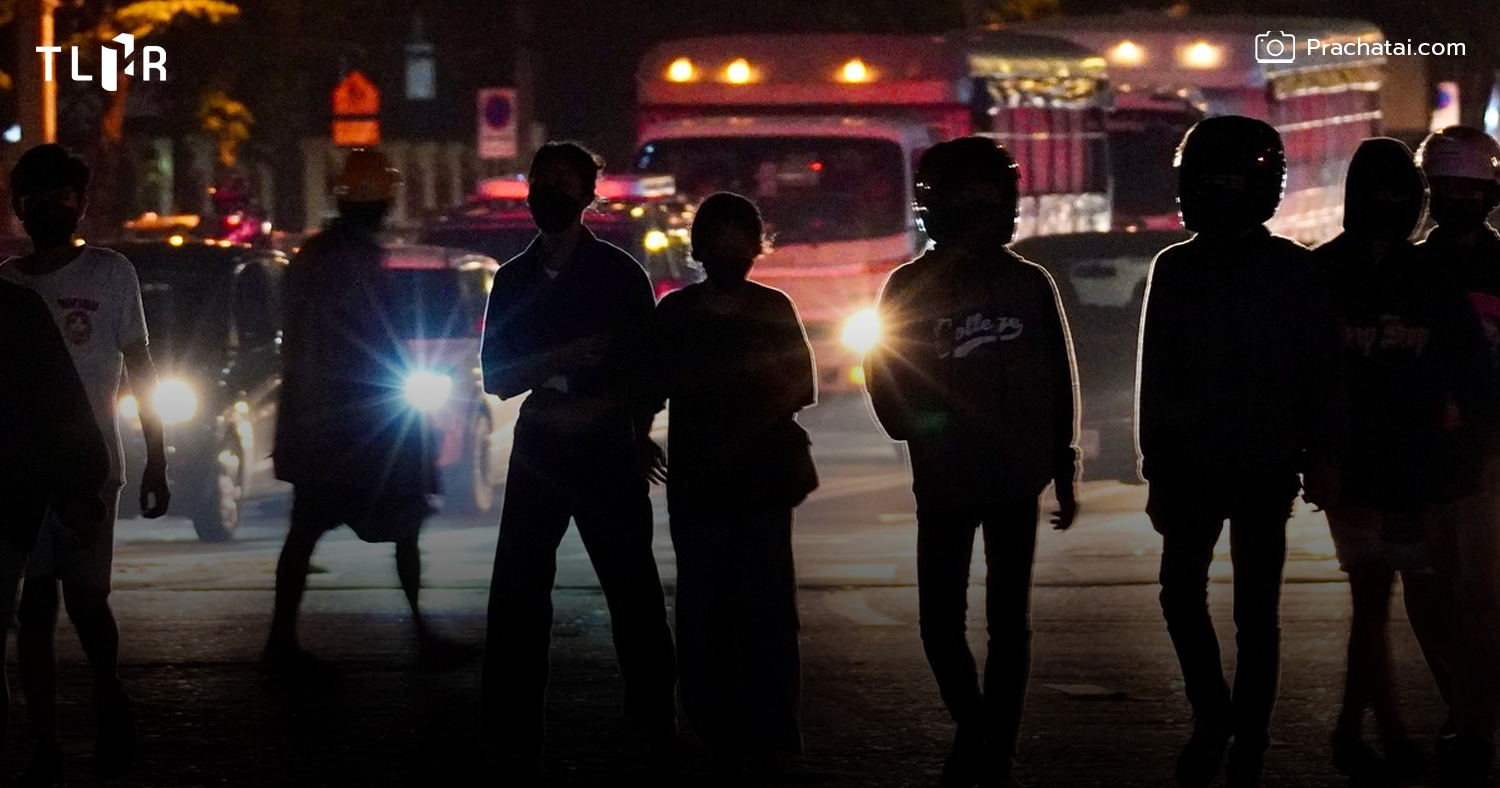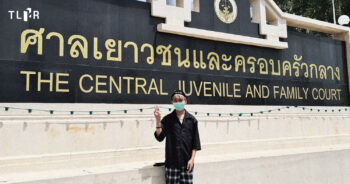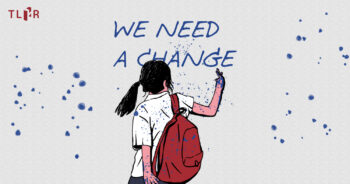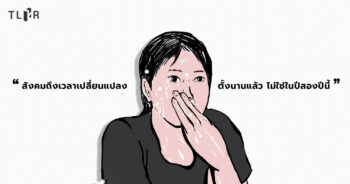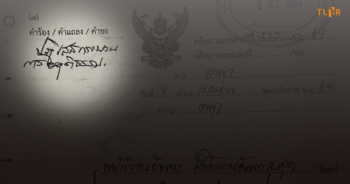Khumklao Songsomboon
Human Rights Lawyer, Thai Lawyer for Human Rights
It has been almost a month where the “Din Daeng Triangle” in the middle of Bangkok has become the gathering point of many children and young people whose political expressions differ from other previous protests. They are not the intellectual ones who always debate about democracy, nor vocal public speakers, nor university student activists who study about social issues and discuss social structures.
There are many other reasons for why they bring themselves here. They come here because they are not satisfied with the current administration; or because police officers started to use violence to disband peaceful protests they organized at the first Infantry Regiment – the home of prime minister Prayut Chan-ocha. They come here to express their anger at the government that cannot solve the economic hardship, nor manage the Covid-19 pandemic. Some come here because their livelihoods are heavily affected, or they may come here because their older comrades asked them to join. They come here to respond to the police officers in their own way by shutting down streets, burning tires, and throwing small grenades.
Many people view what happened was not a “peaceful civil resistance,” even though many schools of pacifist academics interpret this in various ways. However, this is not a valid reason or the permission for police officers to not act in accordance with the law or not following international standards for crowd control. The dispersal must start from the least intrusive measures, and the use of force must comply with the principles of necessity and proportionality.
Importantly, these protesters are still children and youth under the age of 18. Despite being accused of criminal offenses, in arrest and detention, the authorities are obliged to comply with the International Convention on the Rights of the Child to which the Thai State has become a party and has an obligation to comply; not to mention having to abide by the Constitution. This includes other laws that protect the rights of children and youths who have been arrested.
The key points of such laws can be summarized as follows:
The Convention on the Rights of the Child has established a number of principles on the treatment of children and young people such as the Article 37, stipulating that states parties must ensure that no child will be subjected to torture or other cruel, inhuman or degrading treatment or punishment. The arrest and detention of children must be in accordance with the law. All children detained must be treated humanely and with respect and dignity. The children and youths must be detained separately from adults, and they must have the right to contact their family members and to receive visits.
Article 40 states that state parties must ensure that all children accused or charged with violating criminal laws are guaranteed to be promptly and directly informed of the charges. Where appropriate, they can be informed through a parent or legal guardian and will receive legal or other appropriate assistance.
Article 10 of the United Nations’ Standard Minimum Rules for the Administration of Juvenile Justice (Beijing Rules) states that when arresting a child and a juvenile, authorities must notify parents or guardians immediately. If it was not possible immediately, they must inform the guardian later at the earliest time.
The Constitution of the Kingdom of Thailand, 2017, Section 28 stipulates that a person has the right and liberty in life and body. Arrest and detention may not be made unless there is an order or a warrant from the court, or any other grounds as provided by law. The search of a person shall not be made except where there is a cause provided by law. Torture, cruel acts or inhumane punishment shall not be permitted.
The Act of Juvenile and Family Court Act 2010, Section 69 also states that the arrest and detention of a child or a juvenile must be conducted peacefully and respects human dignity and privacy. The authorities shall not use any means more than necessary to prevent escape or for the safety of the arrested child or other person. They also must not use fetters and handcuffs against a child under any circumstances unless there is an unavoidable necessity to prevent escape or for the safety of the arrested child or other person.
At the time of arrest, the officer in charge must inform the child or juvenile of the arrest, and notify the allegations and their legal rights. If at the time of arrest there was no father, mother, or guardian present, the arresting officer shall notify any such person of the arrest as early as possible. And if a child or youth wishes to contact such person which does not impede the arrest, the officer shall proceed as appropriate in the case without delay.
Before bringing the child or juvenile to the local police station, the arresting officer shall make a record of the arrest and inform the offence and cause of arrest to the child/juvenile. However, they must not ask them for testimonies. The arresting officer must then immediately take the arrested to the local police station so they can hand over the arrested to the officer responsible for inquiry.

According to media reports and TLHR’s experiences in providing legal assistance to those arrested from Thalugaz protest, during August 2021, the lawyers found that the arrests carried out by the police have used excessive force and weapons. The police officers aggressively arrest the people until they fall down, beat them with batons repeatedly, knock down a running motorcycle, shooting rubber bullets in endangered levels, and chasing the suspects with the police cars at dangerously close distances, etc.
Moreover, when the Thalugaz protesters are arrested, they are often tied with cable tire around the wrist. Mobile phones are usually seized, making it impossible to contact parents or lawyers. And instead of being taken to Din Daeng police station, the local police station, the protesters are immediately taken to the Narcotics Suppression Bureau, which is far from the scene of the accident. In addition, with the curfew in place between 21.00 – 04.00 hrs, even though some can contact their parents, the parents could not travel immediately to partake in the preparation of an arrest record. The children/juveniles also could not be taken back home that night as the parents might not have cars and not wish to violate the curfew. This results in children and youth being held in police custody for a longer period of time.
The arrests carried out by the authorities are far from respecting human dignity, and exceeding necessary controls to prevent escape or for the safety of the arrested child and juvenile or other person. It is not in accordance with the principles of the International Convention on the Rights of the Child, unconstitutional, in breach of the Juvenile Court Act, and not based on legal basis. It is a direct civil and criminal liability of the Prime Minister as the crowd control police officers using excessive forces are under the Royal Thai Police, and is a direct responsibility to the Prime Minister.
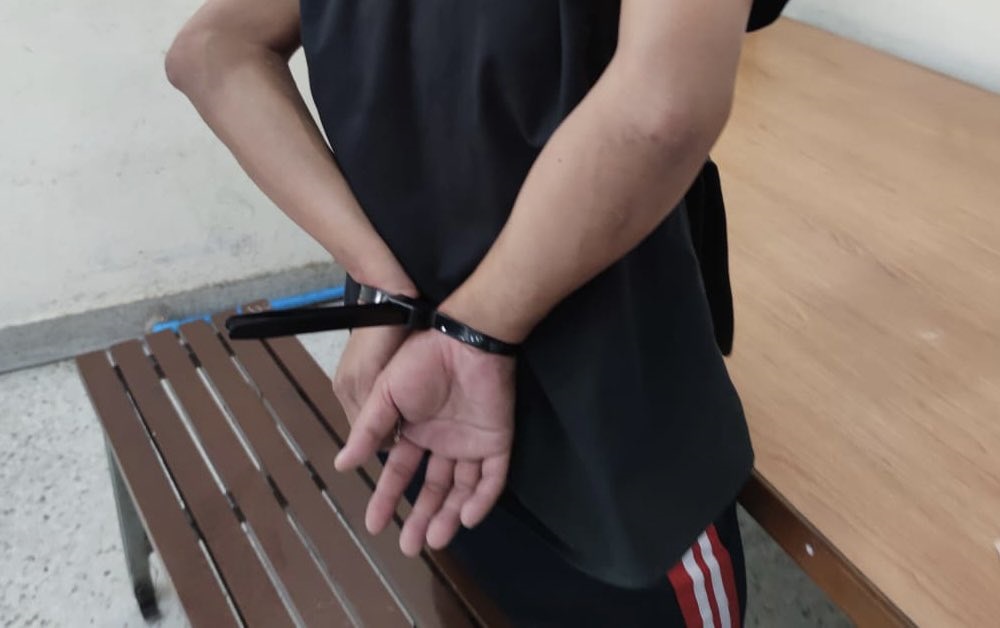
It is also the duty of the Juvenile and Family Court to check the legality of the arrests. If the court finds that the arresting officers do not comply with the law, the court has the power to rule the arrest unlawful. It is a system for checking the use of power by the authorities to guarantee the rights of the people. It is also the duty of human rights organizations to investigate and report any non-compliance with the rights of children and youth to the international community in a timely manner.
Most importantly, the public should not ignore the violence that occurred in the Din Daeng Triangle because neglect is a permit that allows the authorities to continue using violence against children and youth without any accountability
